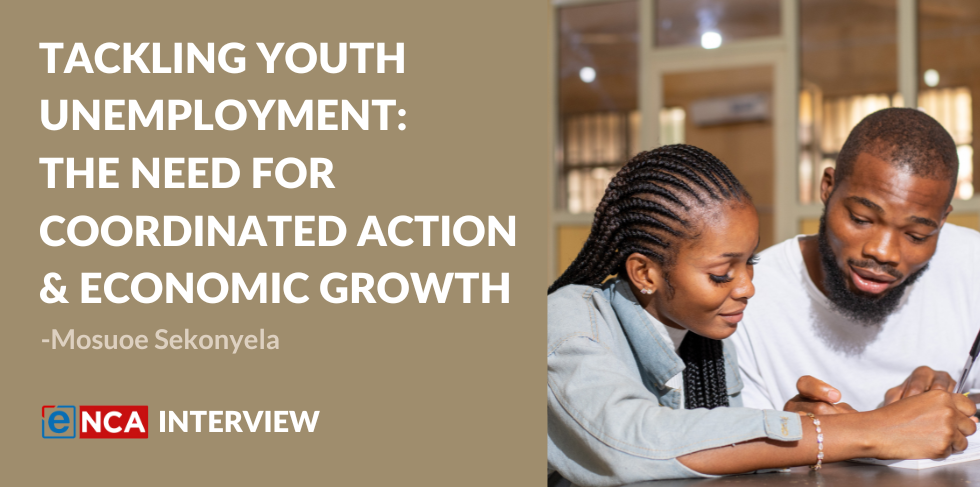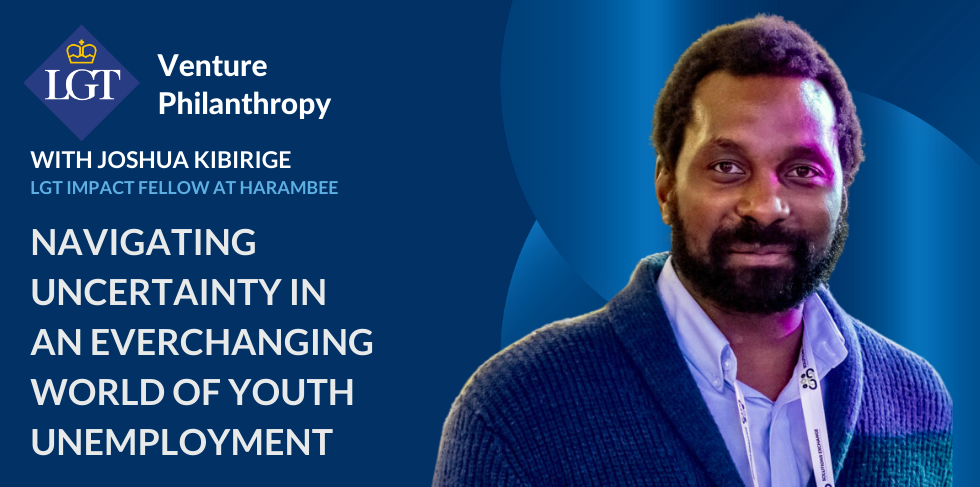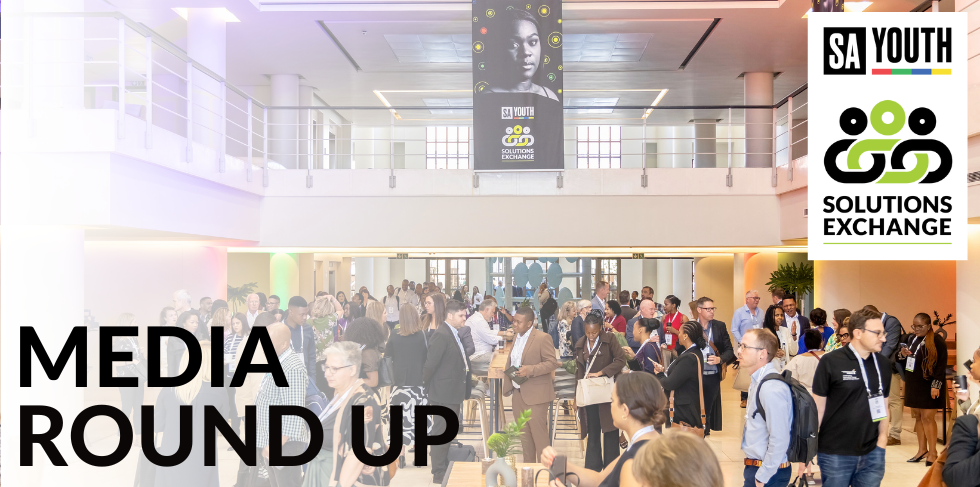There is no doubt that the youth, brimming with innovation and talent, hold the potential to transform our country, from both a social and economic perspective. The paradox is that we face a growing unemployment crisis, with over 9 million young people currently excluded from the economy – not in employment, education, or training. It is essential to emphasize that the youth are key to building the South Africa we envision. We have no choice but to take urgent action to create conditions that allow young people to access dignified and sustainable work and entrepreneurship opportunities.
With an expanded youth unemployment rate of 54%, or 1 in every 2 young people currently unemployed, youth unemployment is no longer a problem we can afford to ignore. Simply put, if we fail to address the fact of economically disengaged youth, we entrench inequality, stifle economic growth, and continue to perpetuate cycles of poverty. The cost to South Africa is immense—not just in missed economic contributions, but in the erosion of hope among our youth. We need a multi-stakeholder approach and collaboration between government, the private sector, and civil society to unlock meaningful opportunities for young people, because the future of our nation depends on it.
Indeed, much has been said and written about the consequences of not tackling this seemingly intractable challenge head-on. We now need to go beyond words, break the silos that exist in how we address youth economic exclusion and commit to effecting change.
Back in 2011, Mark Kramer and Prof Michael Porter wrote a paper on the concept of shared value. It spoke to the idea that we at Unilever subscribe to: there is no good business model for a failing society, and what is good for South Africa is suitable for Unilever. Still, there are many ways for businesses to engage with this problem. Corporate philanthropy involves giving back to the community and fulfilling societal obligations. Corporate Social Responsibility (CSR) highlights the importance of being a responsible business and minimizing harm to society and the company. In contrast, the concept of Shared Value focuses on identifying business opportunities that arise from addressing social issues. This is often where misunderstandings occur among private sector partners, NGOs, and government entities. However, this is the key area where we can truly create sustainable and scalable solutions over the long term.
Not every challenge can be solved by shared value, and it does not replace Corporate Philanthropy or CSR, however, given that companies can take risks in ways that government can’t always do and NGOs rarely have the funds, creating a business opportunity, we believe you develop solutions which can scale and not have to rely on philanthropy or country tax base alone. This shared value, encapsulated in Public-Private Partnerships (PPPs), is the key to driving systemic change. When done correctly, I have seen the impact that these partnerships can have on the country and believe that shifting the trajectory of youth employment is achievable through this.
Social compacts work when the interests of critical stakeholders align, centred on a shared vision, trust, accountability, and meaningful collaboration. They benefit society broadly and vulnerable groups particularly.
I’ve enjoyed seeing effective partnerships in action in the past several weeks. I was proud to be invited to witness the launch of Phase 2 of the Government-Business Partnership for a Better South Africa. Phase 1 of the partnership, initiated in 2023, demonstrated the power of collaboration between government and business. It tackled some of the country’s most pressing challenges in energy, transport and logistics, and crime and corruption, resulting in significant achievements.
Building on this momentum, Phase 2 will scale these efforts with increased resources and a clear set of actions to contribute to more rapid economic growth. It was inspiring to see the recommitment from Business and Government to these initiatives and the ambitious goal of delivering a virtuous circle of 3%+ GDP growth in 2025, creating more jobs while fuelling growth.
Recently, I delivered the keynote address at the Solutions Exchange Conference, hosted by Harambee Youth Employment Accelerator, the PMO in the Presidency, Youth Employment Services (YES), and Business Unity South Africa (BUSA), where participants emphasized the importance of a shared approach to addressing youth unemployment in meaningful, actionable ways. Witnessing the commitment from all sides reminded me how much we can achieve when working together toward a shared vision.
The YES program is critical in providing a work-based experience for young graduates who would otherwise struggle to reach the corporate ladder. At Unilever, I am struck by the success of one of our employees, named one of the 2024 #YESTop35Under35 trailblazers as a previous graduate accepted into the YES program. Like other graduates, she tried several internship opportunities after completing her Honours in Industrial Psychology at Wits University. She applied for and got accepted into the YES program and has never looked back ever since. She is currently a Learning & Development Coordinator and plans to transition into a generalist role, such as a People Partner and a Human Resources Business Partner.
This is but one example of many similar heart-warming stories of graduates who are being absorbed by companies participating in the YES program. Through this initiative, we can make a difference in the problem of youth unemployment in South Africa.
Addressing youth unemployment will also require a comprehensive approach encompassing education reform, skills development initiatives, and targeted employment programmes.
Collaboration is at the heart of South Africa’s approach to youth employment, a vision championed by President Ramaphosa in 2019 with the launch of the Presidential Youth Employment Intervention (PYEI). As outlined in South Africa’s National Development Plan (NDP), entrepreneurship is a critical driver of economic growth. However, entrepreneurship remains constrained by systemic barriers, with young entrepreneurs struggling to access finance, mentorship, and markets.
Unilever’s Bright Future programme exemplifies how the private sector can support youth-led businesses by providing mentorship, access to resources, and pathways to markets. However, to unlock the full potential of entrepreneurship, both government and the private sector must deepen their investment in young entrepreneurs. That means expanding access to capital, reducing bureaucratic barriers, and prioritizing youth innovation in key growth sectors such as green technologies and digital economies.
I am not naïve of the size, scale, and complexity of the challenges we face in South Africa, but I believe that the opportunity to reshape South Africa’s future is within our grasp. As a business leader who has the ability and willingness to effect change alongside others, my hand is up.
– Justin Apsey, Managing Director, Unilever Southern Africa




 Stay Connected
Stay Connected



